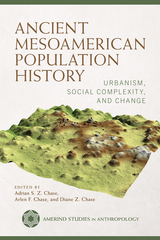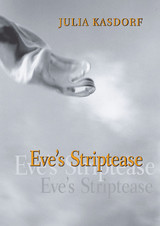
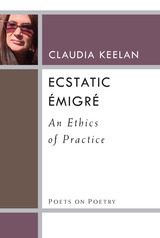
Ecstatic Émigré pays homage to poets from Thoreau and Whitman to Alice Notley, all of whom share a commitment to living and writing in the moment. Keelan asks the same questions about the growth of flowers or the meaning of bioluminescence as she does about the poetics of John Cage or George Oppen. Her originality is grounded by the ways in which she connects poetic principles with the spiritual concepts of via negativa demonstrated both in St. John of the Cross and Mahayana Buddhism. In addition, her essays demonstrate an activist spirit and share a commitment to the passive resistance demonstrated in Martin Luther King, Jr.’s concept of the “beloved community” and philosopher Simone Weil’s dedication to “exile.”
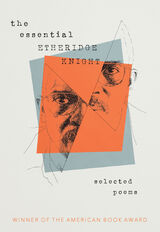

An Ojibwa woman has been found dead on the outskirts of the Minnesota Red Earth Reservation. The coroner ruled the death a suicide, but after an ex-lover comes back into her life saying foul play was involved, Renee LaRoche wants to prove otherwise. As the events begin to unfold, Renee conducts a presumably normal welfare check on a young Ojibwa boy in foster care. After she learns the boy has suffered abuse, Renee finds herself amid an investigation into the foster care system and the deep trauma it has inflicted on the Ojibwa people. As Renee uncovers horrible truths, she must work through her own childhood issues to help shine a light on the dark web she has stumbled into.
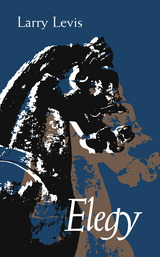
The poems were written in the six years following publication of his previous book, The Widening Spell of the Leaves, and continue and extend the jazz improvisations on themes that gave those poems their resonance. There are poems of sudden stops and threats from the wild: an opossum halts traffic and snaps at pedestrians in posh west Los Angeles; a migrant worker falls victim to the bites of two beautiful black widow spiders; horses starve during a Russian famine; a thief, sitting in the rigging of Columbus’s ship, contemplates his work in the New World. The collection culminates in the elegies written to a world in which culture fragments; in which the beasts of burden—the horses, the migrant workers—are worked toward death; a world in which "Love's an immigrant, it shows itself in its work. / It works for almost nothing"; a world in which "you were no longer permitted to know, / Or to decide for yourself, / Whether there was an angel inside you, or whether there wasn't."
Elegy, as Levine says, was "written by one of our essential poets at the very height of his powers. His early death is a staggering loss for our poetry, but what he left is a major achievement that will enrich our lives."
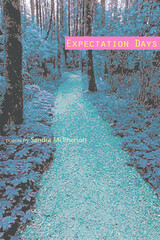
From movie making to medical misadventures, meditations on widowhood to feminist protestations, Expectation Days is a dazzling portrayal of instances in Sandra McPherson’s life. Her autobiographical collection uses peculiar and exact language to reflect on a wide range of activities that include grouse hunting, going through airport security after 9/11, and climbing a coastal cliff. From being an unintended child to ceremonializing a lifetime “served,” McPherson speaks in both clear and distressing voices from the state of speechless fear that is bereavement.
Will the little figures ever reach the monument?
A doctor orders me to be on watch.
Will the mist pass over their cheeks
and clear the strollers’ eyes?
If so, I’ll see it. I’m on watch.
I train my eyes on paintings
to see if there is any change.
--from “On Suicide Watch”
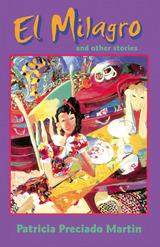
Reminiscent of Like Water for Chocolate, the book is a rich mix of the simplest ingredients—food, family, tradition. We see Silviana striding to her chicken coop, triggering the "feathered pandemonium" of chickens who smell death in the air. We meet Elena, standing before the mirror in her wedding dress, and Teodoro Sánchez, who sleeps under the sky and smells of “chaparral and mesquite pollen and the stream bottom and the bone dust of generations. There’s the monsignor sitting on the edge of a sofa, sipping Nescafé from a china cup, and here is Sister Francisca "with her warm, minty breath" warning us away from impure thoughts. Be on your best behavior, too, in Tía Petra’s Edwardian parlor—la Doña Petrita, descended from conquistadores, might just deliver a tap on your head with her silver-handled walking stick. Then, with Mamacita, spend a summer afternoon bent over your embroidery with trembling hand and sweaty upper lip, and all the while wondering what in the world it feels like to be kissed.
Intermingled with the author’s stories are collective memories of the barrio, tales halfway between heaven and earth that seem to connect barrio residents to each other and to their past. These cuentos are mystical and dreamy, peopled with ghosts and miracles and Aztec princesses dressed in feathers and gold. Come, sit down and have some salsa and a tortilla—fresh and homemade, it goes without saying; people who buy tortillas at the market "might as well move to Los Angeles, for they have already lost their souls." Then open the pages of this book. Help yourself to another feast of food and flowers, music and dancing, sunshine and moonlight—everything glorious and mundane, serious and humorous, earthly and spiritual, poignant and joyful, in la vida mexicoamericana.
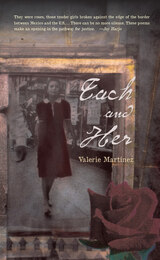
Martínez departs from traditional narrative to reveal the hidden effects and outcomes of the horrific and heart-wrenching cases of femicide. These poems—lyric fragments and prose passages that form a collage—have an intricate relation to one another, creating a complex literary quilt that feels like it can be read from the beginning, the end, or anywhere in between. Martínez is personally invested in the topic, evoking the loss of her sister, and Each and Her emerges as a biography of sorts and a compelling homage to all those who have suffered. Other authors may elaborate on or investigate this topic, but Martínez humanizes it by including names, quotations, realistic details, and stark imagery.
The women of Juárez, like other women around the world, are ravaged by inequality, discontinuity, politics, and economic plagues that contribute to gender violence. Martínez offers us a poignant and alarming glance into another world with these never-before-told stories. Her refreshing and explosive voice will keep readers transfixed and intrigued about these events and emotions—removed from us and yet so close to the heart.
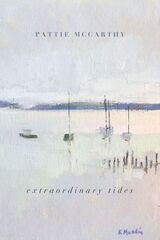
Pattie McCarthy’s extraordinary tides occupies a space in the intertidal, the in-between place of not-quite-land and not-quite-sea. The poems reflect on passing time, fluctuating tides, and on our efforts to predict both. Upon a ground that is always in flux beneath us, McCarthy invites us to question if and how we really know where we are. Considering the language of the tides, the poems in this chapbook make a wrackline palimpsest, a seastruck archive, a marginalia of the littoral.
McCarthy's extraordinary tides is the winner of the 2021 Omnidawn Poetry Chapbook Contest, chosen by Rae Armantrout.
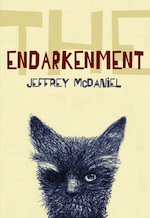
"Known for his commanding stage presence as a reader, McDaniel trades hard in his fourth book on his rough-and-tumble persona--a recovering addict from the working class streets--while also showing softer sides. McDaniel's sometimes awkward, if earnest searching might just be what allows him to find moments of great beauty, humor and stillness." --Publishers Weekly
“McDaniel is known for his talent performing his poems, however his voice doesn’t lose its impact in written form. It may be more powerful because the reader can view the poet’s unique ideas and phrases over and over until their various meanings sink in.” —Gently Read Literature
"McDaniel zings metaphors across the page like he's the Robin Williams of poetry. This collection in frequently moving and inventive with enough lightheartedness and whimsy to balance the heaviness of the darker moments." --hipbooksterclub.com
Jeffrey McDaniel is the author of Alibi School, The Forgiveness Parade, and The Splinter Factory. His work has appeared in a number of anthologies, including Best American Poetry 1994, The Outlaw Bible of American Poetry, and New (American) Poets. He has won several awards, including an NEA Fellowship. He teaches creative writing at Sarah Lawrence College.
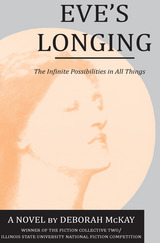
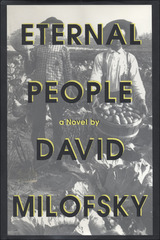
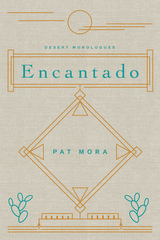
Each poem forms a story that reveals the complex and emotional journeys we take through life. Mora meanders through the thoughts of Encantado’s residents—the mothers and sisters, brothers and fathers in whom we see slivers of ourselves and our loved ones—and paints a portrait of a community through its inhabitants’ own diverse voices. Even the river has a voice we understand.
Inspired by both the real and imagined stories around her, Mora transports us to the heart of what it means to join in a chorus of voices. A community. A town. Encantado.


Everywoman Her Own Theology: On the Poetry of Alicia Suskin Ostriker engages Ostriker’s poetry from throughout her career, including her first volume Songs, her award-winning collection The Imaginary Lover, and her more recent work in the collections No Heaven, the volcano sequence, The Old Woman, the Tulip, and the Dog, and Waiting for the Light. Like her literary criticism and essays, Ostriker’s poetry explores themes of feminism, Jewish life, family, and social justice.
With insightful essays—some newly written for this collection—poets and literary critics including Toi Derricotte, Daisy Fried, Cynthia Hogue, Tony Hoagland, and Eleanor Wilner illuminate and open new pathways for critical engagement with Alicia Ostriker’s lifetime of poetic work.
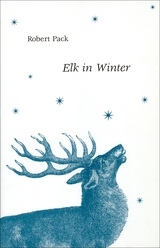

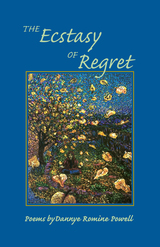
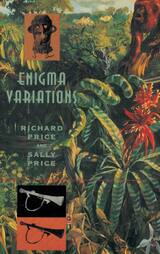

A kind of translation of the thousand-year-old poem “Earth Took of Earth,” this book is an attempt to restate in personal, emotional terms a sense of both the danger of and the consolation given by earth itself. Many of these poems arose during a collaboration with the ecologist-ceramicist Mia Mulvey: her work with earth, clay often extruded through digitally guided machinery, echoes Ramke’s attempts to understand damages done to and celebrate the facts of earth—for instance, that geosmin, the scent of wet soil, is so powerfully recognizable even in trace amounts. The title of this book is also a play on the phrase “heaven on earth,” turning this idea around and encouraging us to instead turn our hopes toward earth on earth.
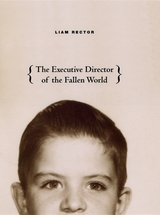
The Worry of the Far Right
The Reverend Donald Wildmon, executive director
Of the American Family Association in Tupelo,
Mississippi, birthplace of Elvis Presley, he who
Unleashed the libido of a generation, announced today
That he, the Reverend, wanted again an America
In which he could drive his convertible into town,
Park it, leave his keys in the ignition,
And worry only that it might rain,
Rather than worry about Liam Rector.
America—you are on notice. Liam Rector has little patience for “sincere” poetry, spin-doctored politicos, or moral hot air of any kind. The titles of these poems could easily serve as their own warning labels: those with clinical depression or easily triggered violent tendencies should use with caution.
The Executive Director of the Fallen World is fearless and forthright, just the sort of blunt reality check that is missing from so much of contemporary, over-stylized poetry. Rector’s stoicism and slightly murderous sense of humor pervade these poems as he doffs his hat to humility and audacity, taking on America, money, movement, marriages, and general cultural mayhem. The characters and voices in Rector’s poems are, by tragic turns, unflinching, clearly and cleanly bitter, sarcastically East Coast, and lyrical. Writing in tercets throughout, the poet breathes new life into this classic form with skill that might just send some unsuspecting readers over the edge.
As the former executive director of the Association of Writers and Writing Programs and a spirited First Amendment advocate who has sparred on screen with Bill O’Reilly, Liam Rector knows whereof he speaks in The Executive Director of the Fallen World.
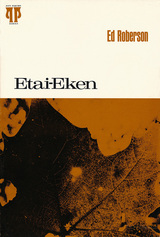
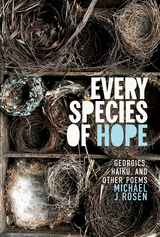
At the center of this book is a suite of poems inspired by Virgil’s Georgics, or “poems of pastoral instruction.” In Rosen’s case, he is more the student than the teacher. Likewise, five short sections of haiku continue his meditation on—or mediation of—art and nature. As he has written, “Haiku provides a brief and mirror-like calm in the choppy waters—in the undertow—of current events: a stillness in time where more than our singular lives can be reflected.”
Illustrated with two dozen pages from the author’s own journal, Every Species of Hope is the consummation of decades of observation, humility, and awe.
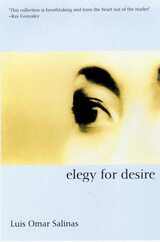
Are those of love and those of death.
I’m half in love and half dead.
It stands to reason that I’ve come upon a difficult task.
Despite his disclaimer, it seems no difficult task at all. One of the pioneers of Chicano poetry and a highly esteemed artist in the Mexican American community, Luis Omar Salinas is a poet with Tex-Mex bordertown roots whose work is studied at the Sorbonne. Beginning with his legendary first book, Crazy Gypsy, he has been a major figure not only in Chicano literature but in all of American poetry—both a poet of the people and a voice for other poets.
In Elegy for Desire, Salinas has crafted visionary poems about growing older and looking back on a rich life of poetry. In this quiet yet hallucinatory volume, Salinas offers us a prismatic collection of odes, elegies, and cantos of desire—complex poems about our place in the world. Poems to be savored in solitude, or better still with an intimate companion. Few poets, Latino or otherwise, are as daring with love poetry that is so honestly fierce. Salinas gives us a meditation on gently aging while continuing to celebrate personal experience that draws upon the world. One need only sample these rich, elegant stanzas to recognize the wealth of wisdom found in their words.
Elegy for Desire is a testament to a singular talent that has survived for decades . . . and will continue to inspire long beyond his lifetime.
The dead can’t complain, and lovers always do.
Well, I’m here, and that is important.
And if life can be as exciting as this,
I must be doing something right.

In this striking poetry collection, Red Shuttleworth, who holds the record as the oldest active boxer (professional or amateur), offers evocative imagery that unapologetically reveals the life of a boxer. From the inspiring hopes of an early career to agonizing defeats, the poems in Eclipse of the Sun take readers on a journey from moderate successes to the realization that a dream of a promising future has become the reality of the long haul of a journeyman. Along the way, Shuttleworth rubs elbows with greats like Muhammad Ali, Chickie Ferrara, and Ron Lyle, exposing the resolute path and difficult end of a hard-lived life.
This collection is an homage to boxing at its grittiest levels, and to fighters who persevere—with hope, blood, and bone—against sense and loss. Few professional boxers earn a living in the ring, and even fewer arrive in their forties with any money left from their sport. In this collection, boxers attain poverty rather than riches, end up in post-career menial jobs, and have no pension plan to fall back on. Shuttleworth’s poetry is a visceral inside look at the brutality and humanity at the heart of boxing.
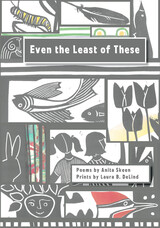
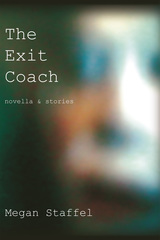

Originally published in 1961, this shrewd, smartly written novel follows two American men traveling in Europe. Though both have struck out for the same continent, each man’s methods of and motives for travel lead him to have a very different experience than the other. Underlying it all is the premise that Europe--the contrast, the otherness of it--can be a refiner’s fire, deeply affecting a person’s character. Europe represents a crucial step in Stern’s development as a writer and stands as a witty, sharp point of entry into his writings and the writings of novelists who rose to prominence in the 1960s.
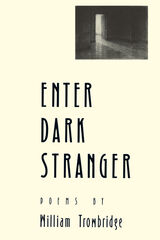
The world of William Trowbridge is one preoccupied with loss, with the fall from some possibility of grace that all who are born must bear. In the title poem of Trowbridge’s first full-length collection the poet calls our attention to movies, to Shane in particular. He asks us to identify, not with Shane, the lonely knight on a nameless quest, but with the much more lonely, and real, Jack Palance, the Prince of Darkness.
Trowbridge favors the villain, the outcast, the imperfect, the sinner, the alienated: King Kong, the Frog Prince, Frankenstein’s monster.
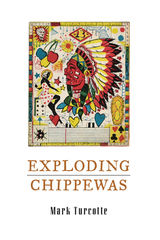

This casebook includes an introduction by the editor, a chronology of Walker's life, an authoritative text of "Everyday Use" and of "In Search of Our Mothers' Gardens," an interview with Walker, six critical essays, and a bibliography. The contributors are Charlotte Pierce-Baker, Houston A. Baker, Jr., Thadious M. Davis, Margot Anne Kelley, John O'Brien, Elaine Showalter, and Mary Helen Washington.
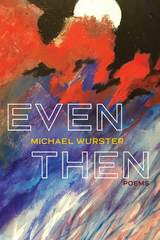
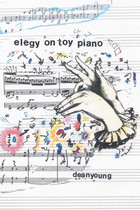
In Elegy on Toy Piano, Dean Young's sixth book of poems, elegiac necessity finds itself next to goofy celebration. Daffy Duck enters the Valley of the Eternals. Faulkner and bell-bottoms cling to beauty's evanescence.
Even in single poems, Young's tone and style vary. No one feeling or idea takes precedence over another, and their simultaneity is frequently revealed; sadness may throw a squirrelly shadow, joy can find itself dressed in mourning black. As in the agitated "Whirlpool Suite": "Pain / and pleasure are two signals carried / over one phoneline."
In taking up subjects as slight as the examination of a signature or a true/false test, and as pressing as the death of friends, Young's poems embrace the duplicity of feeling, the malleability of perception, and the truth telling of wordplay.

Walter Ancarrow’s collection Etymologies considers language as a process, rather than as a singular fixed history. These poems build imaginative worlds with a variety of creative word uses. They form a playful amalgamation of linguistic interpretations that flips and questions conventional narratives about word origins—including the idea that clear origins even exist. Throughout the collection, Ancarrow questions the intent of writers who use etymology in attempts to prove a specific meaning for any word. In so doing, Etymologies pays particular attention to relationships between the cultures and conflicts, the migrations and hegemonies, that create our words, and it considers how their meanings are furthered by us as we keep them alive through speech.
Etymologies won Omnidawn’s 2021 Open Poetry Book Prize, selected by John Yau.
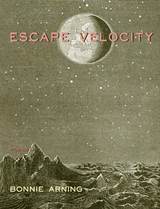
From the moment of a marriage’s heated inception to its period of luminous crowding and onward into distance and darkness, Bonnie Arning’s Escape Velocity asks if it’s possible to exist outside the only universe we’ve ever known. In modes both lyric and narrative, we are given a peephole into the height and decline of a marriage that begins beneath the moving lights of Las Vegas, Nevada, and traverses the devastating terrain of gambling, miscarriage, infidelity, and violence.
Arning gives voice to divergent aspects of love and violence through her use of math problems, erasures, dictionary entries, structured stanzas, and sprawling free verse. This multiplicity of forms comes together to explore everything from pop culture references of domestic violence to cultural notions of victims and victimhood. However dark, collectively these poems tell a love story—an acceptance of our capability to love those who hurt us, but also the love-of-self required to slowly and steadily reach "the velocity to be everleaving."
In the tradition of Eavan Boland and Louise Glück, Arning wrestles down and examines the terrible without flinching. We journey with her, engrossed by each difficult truth: a precipice near which we are both terrified to stand and transfixed by its unnerving insistence on beauty.
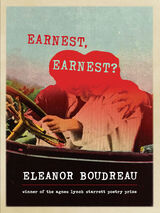
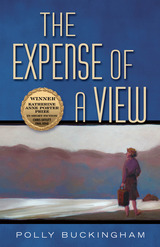
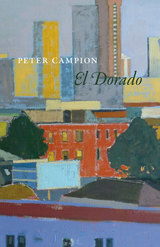
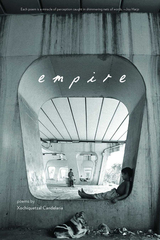
This distinctive collection ranges from the frighteningly whimsical image of Cortés dancing gleefully around a cannon to the haunting and poignant discovery of a dead refugee boy seemingly buried within the poet herself. The blending of styles works to blur the lines between subjects, creating a textured narrative full of both imagination and nuance.
Ultimately, Empire situates individual experience in the wider social context, highlighting the power of poetry as song, performance, testimony, and witness. Addressing themes such as war, family, poverty, gender, race, and migration, Candelaria gives us a dialogue between historical and personal narratives, as well as discreet “conversations” between content and form.
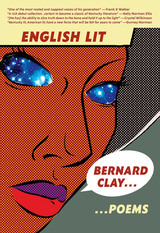
Autobiographical poetry from one of Kentucky’s rising Affrilachian literary stars.
Bernard Clay’s autobiographical poetry debut, English Lit, juxtaposes the roots of Black male identity against an urban and rural Kentucky landscape. Hailed as one of the most authentic voices of his generation, Clay artfully renders coming-of-age in the predominately Black West End of Louisville, Kentucky. Balancing the spirited grit of a farmer and the careful lyricism of a poet, English Lit is a triumph of new Affrilachian—African American and Appalachian—literature.
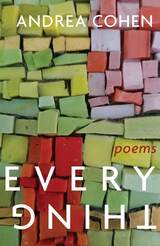

In Everyday Psychokillers spectacular violence is the idiom of everyday life, a lurid extravaganza in which all those around the narrator seem vicarious participants. And at its center are the interchangeable young girls, thrilling to know themselves the object of so much desire and terror.
The narrative interweaves history, myth, rumor, and news with the experiences of a young girl living in the flatness of South Florida. Like Grace Paley's narrators, she is pensive and eager, hungry for experience but restrained. Into the sphere of her regard come a Ted Bundy reject, the God Osiris, a Caribbean slave turned pirate, a circus performer living in a box, broken horses, a Seminole chief in a swamp, and a murderous babysitter. What these preposterously commonplace figures all know is that murder is identity: "Of course what matters really is the psychokiller, what he's done, what he threatens to do. Of course to be the lucky one you have to be abducted in the first place. Without him, you wouldn't exist."
Everyday Psychokillers reaches to the edge of the psychoanalytical and jolts the reader back to daily life. The reader becomes the killer, the watcher, the person on the verge, hiding behind an everyday face.
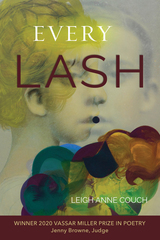
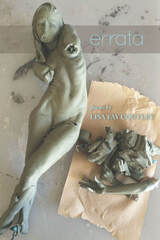
Finalist, INDIEFAB Book of the Year
Lisa Fay Coutley’s lyrical debut collection, Errata, investigates the delicate balance between parent and child, love and loss, hope and grief. Errata’s narrator reflects on struggles and fears that span generations in compositions that are at once musical and bleak. Coutley’s narrative journey is often a dark one, exploring not only the loss of loved ones but also the potential to lose one’s very self. The collection unravels the lingering consequences of abuse and addiction, yet threads of hope and determination weave a finely wrought path through the dark side of human relationships, illuminating the power of the will to survive. Coutley’s sharp yet tender collection will both haunt readers and move them to reflect, to remember, and most of all, to persevere.
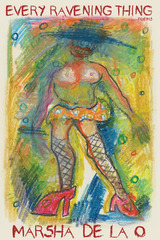


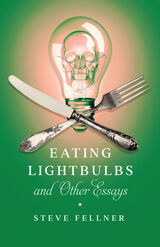
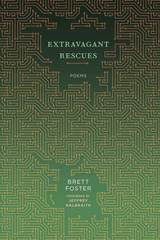
The poems ask questions with hymnlike couplets, in a language of the gospel of empathy. We are allowed to rethink our choices, question and be wary of our machinery, and, in the end, with metaphors that channel feelings of loss, humor, and compassion, we are reminded “to come, and dream, with eyes wide open / and set within the vessels of our waking selves, / of ever more intricate schemes, extravagant rescues.”
![front cover of [explicit lyrics]](https://www.bibliovault.org/thumbs/978-1-61075-581-8-thumb.jpg)
Winner, 2016 Miller Williams Poetry Prize, edited by Billy Collins
Randall Jarrell said that when you read a poem “you are entering a foreign country whose laws and language and life are a kind of translation of your own.” In [explicit lyrics], we are visitors to a world that is familiar as if the poems are occurring in our town, on the streets where we live. But the laws have changed, and what is normally important is no longer relevant. What was meaningless is now everything.
As the title indicates, these poems are lyrics—musings on the small decisions required by existence in the modern world. They contain the grand themes of art—life, love, and mortality—but not where you expect. The smallest and most mundane objects become the catalyst for reevaluating our roles in society and the world. This is not poetry as art. This is life as art, from a country where poetry is the only language.
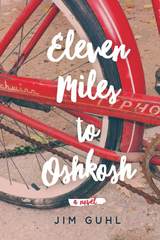
Minnow finds support in the company of his roguish grandfather, his loyal pal Mark, and beautiful Opal Parsons, who has her own worries as the first African American student in their school. When the sheriff seems in no hurry to solve the murder, Minnow must seek justice by partnering with unlikely allies and discovering his own courage.
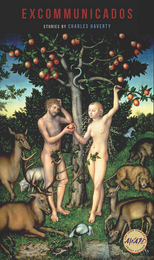
A sixteen-year-old boy unearths grisly evidence of his genteel grandfather’s racist past. At his sister’s booze-soaked destination wedding, a recovering alcoholic English professor is finagled into ghostwriting their unreliable father’s nuptial toast. A small town lawyer’s Edenic existence is jeopardized when his wife’s younger brother is arrested for a rash of local burglaries. In the wake of her daughter’s brush with disaster in the Haiti earthquake, a mother finds herself drawn down a dark neighborhood sidewalk toward what might or might not be a dead body. And in the title story—the first of three linked stories—a pious altar boy confronts the twin mysteries of sex and death through the auspices of a classmate’s divorced mother.
There are secrets at the center of each of these daring and original stories—secrets that separate these characters from one another but grow in the mind and the heart, connecting them with all of us.
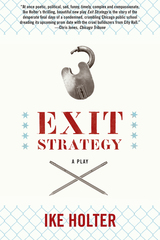
Drawing from the headlines, Exit Strategy is set in Chicago and tells the story of a fictional public high school slated for closure at the end of the year. Despite funding cuts, bureaucrats run amok, apathy, and a rodent infestation, a small, multiracial group of teachers launch a last-minute effort to save the school, and put their careers, futures, and safety in the hands of a fast-talking administrator who may be in over his head. The tenuous situation also raises fears and anxieties among students, and within the volcanic neighborhood that is home to the school.
Holter has said that Exit Strategy was inspired by the 2013 mass closure of forty-nine Chicago public schools, which displaced nearly 12,000 children—the majority of directly impacted students were African American and Latinx. Hailed as "riveting," "sharp," and "richly metaphoric" by critics, the play indicts how we educate our children in big American cities, and shows why gaps between haves and have-nots continue to grow.
Exit Strategy is one of seven plays in Ike Holter's cycle of works set in Chicago or Chicago-inspired neighborhoods.
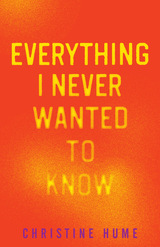
In Everything I Never Wanted to Know, Christine Hume confronts the stigma and vulnerability of women’s bodies in the US. She explores bodily autonomy and sexual assault alongside the National Sex Offender Registry in order to invoke not solutions but a willingness to complicate our ideas of justice and defend every human’s right to be treated like a member of the community. Feminist autobiography threads into historical narrative and cultural criticism about the Victorian-era Frozen Charlotte doll; the Nylon Riots of the 1940s; the movie Halloween; Larry Nassar, who practiced in Hume’s home state of Michigan; and other material. In these reflections on sexuality, gender, criminality, and violence, Hume asks readers to reconsider what we have collectively normalized and how we are each complicit, writing through the darkness of what we don’t want to see, what we’d rather not believe, and what some of us have long tried to forget.

Winner of the 2016 Colorado Prize for Poetry
Selected by Tyrone Williams for the 2016 Colorado Prize for Poetry, Exit Theater casts classical elegy, with dazzling formal innovation, into a staggering work of contemporary, political polyphony. Through monologues, performance scripts, and poems of exquisite prosody, Mike Lala examines the human figure—as subject and object, enemy and ally—in the context of a progressively defigured and hostile world. Catullus, Shakespeare, Cy Twombly, and Lydia Delectorskaya echo across engagements with Israeli generals, accused terrorists, State Department employees, nuclear scientists, Saturday Night Live actors, war criminals, malware, and a host of mythic, literary, and half-extant spectral characters. Amid the cacophony, Lala implicates every actor, including himself, in a web of shared culpability vis-à-vis consumerism, representation, speaking, writing, and making art against the backdrop of the endless, open wars of a post–Cold War, post-2001 era. Exit Theater is a debut of and against its time—a book about war, art, and what it means to make art in a time of war.

Mixing sincerity with irony, lyric with vernacular, Lantz’s collisions of style and subject are at their most vibrant in the long sequence at the center of the collection, a series of poems that brilliantly capture the disruption and disorder of our lives during the COVID-19 pandemic in breathless, unpunctuated verse. Depicting the uncanny dissonance of living during and beyond events that feel world ending, this volume reminds us of the ways in which we carry our own traumas and the traumas of history with us in our daily lives.
Life is all gilded frescoes
and Arnold Palmers
at the clubhouse until Titus and his men
pass through with torches,
until Cortés and his men
pass through with torches, until Sherman
and his men and so on,
until men forget
what their hands looked like without torches.
—Excerpt from “Ruin”
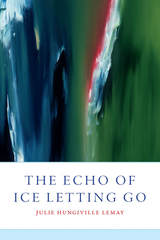

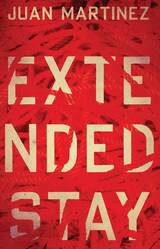
After his parents are killed in a horrific roadside execution, Alvaro flees his home in Colombia and finds work as a line cook at the seedy hotel. Together with his sister, Carmen, he begins to make a new life in the desert, earning a promotion to management along with an irresistible offer to stay at the hotel rent-free. But as beloved photographs go missing, cockroaches seep from the walls, and grotesque strangers wander the corridors, the promise of the Alicia decays into nightmare. Alvaro discovers that the hotel is a small appendage of an enormous creature that feeds on guests and their secrets, one that will eventually bring him face-to-face with the memories he most wants to outrun. Alvaro, Carmen, and their friends decide to cooperate with the creature rather than fight it. But in their efforts to appease it, do they sacrifice too much of themselves?
Haunting and visceral, Extended Stay uses the language of body horror and the gothic to comment on the complicated relationship between the Latinx undocumented experience and capitalism, the erasure of those living and working on the margins, the heavy toll exacted by memory, and the queasy permeability of boundaries that separate the waking world from the world of dreams.
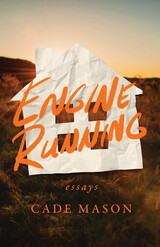
Engine Running explores debut author Cade Mason’s gradual distancing from home and old selves alongside an increasingly fractured family doing the same. Starting at the beginning of his parents’ love and working past its end, he combs through memory to piece together a portrait of a family then and now: of a father, reeling after a blindsiding divorce; of a mother, anxious to move on; of a sister, caught in the crossfire; and of a son, learning to embrace his sexuality even as he fears that his own loves may have deepened the rift between his parents.
Lush and innovative, these essays contemplate childhood memories and family secrets, religion and queerness in the rural South, and the ways rituals and contours of manhood are passed through generations. Most of all, we feel with Mason what it is to grapple with and love a place even as you yearn to leave.
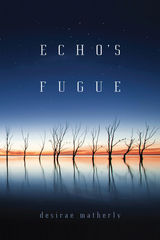
Through a series of variations on the theme of love—unrequited, polyamorous, monogomous, scandalous, adulterous—Desirae Matherly’s Echo’s Fugue explores love in all its failures and delusions. Patterned on the unfinished The Art of Fugue by Johann Sebastian Bach which has been a mystery for centuries, Echo’s Fugue undertakes Bach’s project in prose—the tantalizing numerical correspondences throughout, the repetition of a single theme, the unfinished final piece.
Matherly’s essays appear as letters, indexes, narrative, or sentence diagrams, each defying the rules of the blank page. Song lyrics, obsession, Greek mythology, psychology, game theory, and human sexuality form a fragmented narrative about loss and unhealthy attachments. Mimicry of Bach’s fugues leads the author to questions about love, sex, desire, the “Bach or Stravinsky” paradigm in game theory, and relationships considered taboo by mainstream standards.
What authority speaks clearest with regard to love, sex, and desire—and is objectivity even possible? The final essay attempts to resolve this question while echoing the puzzle of Bach’s final unfinished fugue.
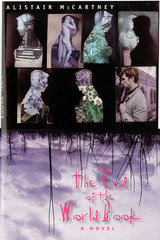
This is no ordinary novel. An encyclopedia of memory—from A to Z—The End of the World Book deftly intertwines fiction, memoir, and cultural history, reimagining the story of the world and one man’s life as they both hurtle toward a frightening future. Alistair McCartney’s alphabetical guide to the apocalypse layers images like a prose poem, building from Aristotle to da Vinci, hip-hop to lederhosen, plagues to zippers, while barreling from antiquity to the present.
In this profound book about mortality, McCartney composes an irreverent archive of philosophical obsessions and homoerotic fixations, demonstrating the difficulty of separating what is real from what is imagined.
Finalist, Edmund White Award for Debut Fiction, The Publishing Triangle
Finalist, PEN USA Literary Award for Fiction
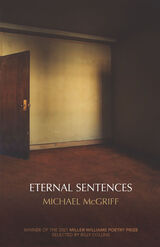
Winner, 2021 Miller Williams Poetry Prize
Michael McGriff’s Eternal Sentences bears witness to the world of gravel roads, working-class families, and geographic isolation in poems that illuminate both common occurrence and the territories of the surreal. Here, in rendering every line as a single sentence, McGriff depicts a world seen through fragments, quick leaps, and wild associations. Haunted as much by place and people as by the possibilities of image-making itself, Eternal Sentences is a song for the hidden depots of rural America.

Set in a semi-fictional, post-industrial American warzone, this novel explores multiple facets related to the recent nonfictional decades of constant civil unrest, with a particular focus on the complicated nature of holding a personal creative life amidst a time of constant violence and change. Despite its heavy themes, the narrative is threaded throughout with veins of absurdist humor that invite and welcome us into the familial warmth of the narrator’s memories of friendship.

While the poems turn an inquisitive, contemporary lens to the subject of Alaska, elements throughout the book are influenced by twentieth-century writers like Elizabeth Bishop and Marianne Moore. The manuscript also combines personal experience with collaged material from the Epic of Gilgamesh, Walt Whitman's notebooks, and other classic sources, to investigate the ideas of love, isolation, and location. Through humor and observation, Partridge takes a new look at what it means to live in urban Alaska and the world at large.

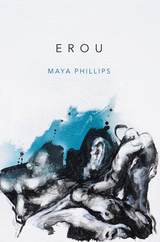

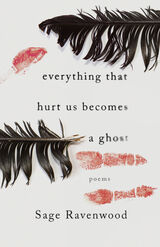

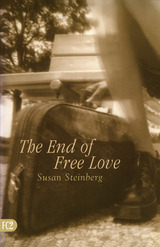
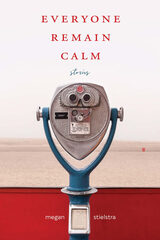
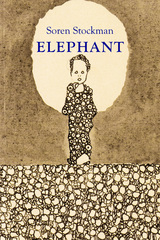

Winner of the 2004 Cave Canem Poetry Prize
The poems in Eye of Water are derived from the narrator’s experiences in what she calls her “waking.” She traces inspiration to “the beginning of myth, to Eve in the Garden of Eden” and states: “We could spend our lives unraveling the mistake and discover that life was one great big ‘chore,’ and inescapable. And the path is full of missteps and accidents because we cannot (or prefer not to) remember all that got us to that moment. My body seems to be a symptom of the past, so no matter who touches me, all the ghosts are waiting there. The ‘chore’ becomes how to survive despite the flaws of our humanness that makes us brutal at times.”


Private investigator Andy Hayes takes the assignment against his better judgment.
In 1979, a high-profile burglar shot a cop, was apprehended, and then disappeared without ever being prosecuted. Forty years later, after the wounded cop’s suicide, his son, Preston Campbell, is convinced there’s been a cover-up that allowed his father’s attacker to go free. At first, Hayes dismisses Campbell’s outlandish conspiracy theories. But when a mysterious Cold War connection to the burglar emerges, the investigation heats up, and Hayes discovers a series of deaths that seem to be connected, one way or another, to the missing criminal. Nothing seems to add up, though, and Hayes finds himself hurtling headlong down a decades-old path of deadly secrets.
In the midst of cracking the cold case, Hayes has another mystery to solve closer to home: What’s been troubling his younger son, Joe, and why is his ex-wife so eager to have the boy out of her house? Further complicating matters, Hayes learns that another private eye, the captivating but inscrutable Hillary Quinne, is also on the trail of the vanished burglar and needs Hayes’s help. As their professional and personal lives blur, Hayes wonders what he’s gotten himself into, and whether he really wants out.
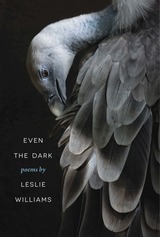
Through restless questioning, the speaker finds a balm for suffering in the divine beauty and mystery of the natural world. Seven prose poems woven into the collection deal with different aspects of a young girl’s life-threatening illness. Five additional poems wrestle with the grief of suicide and the emptiness afflicting those left behind. Other poems in the collection reflect on how to approach daily life while coping with heartbreak and express wonder about our responsibilities in a variety of roles: as parents, as neighbors, as an imagined anchoress, as children of God.
The language remains beautiful and precise throughout, whether the speaker lies “in a gully cracked / with stars” or tells herself, “It’s a handmade raft I live on.” The speaker entreats, as in Psalm 27, “teach me how to live.” Dwelling attentively in the abundance and mystery of creation, the book aims to offer a comfort and peace that might “even the dark.”
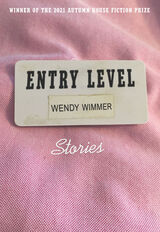
Wendy Wimmer’s debut short story collection, Entry Level, contains a range of characters who are trying to find, assert, or salvage their identities. These fifteen stories center around the experience of being underemployed—whether by circumstance, class, gender, race, or other prevailing factors—and the toll this takes on an individual. Wimmer pushes the boundaries of reality, creating stories that are funny, fantastic, and at times terrifying. Her characters undergo feats of endurance, heartbreak, and loneliness, all while trying to succeed in a world that so often undervalues them. From a young marine biologist suffering from imposter syndrome and a haunting to a bingo caller facing another brutal snowstorm and a creature that may or not be an angel, Wimmer’s characters are all confronting an oppressive universe that seemingly operates against them or is, at best, indifferent to them. These stories reflect on the difficulties of modern-day survival and remind us that piecing together a life demands both hope and resilience.
Entry Level was selected by Deesha Philyaw as the winner of the 2021 Autumn House Fiction Prize.
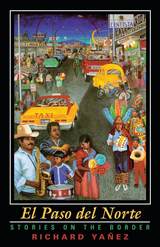
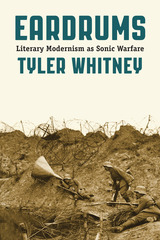
Eardrums is the first book-length study to explore the relationship between acoustical modernity and German modernism, charting a literary and cultural history written in and around the eardrum. The result is not only a new way of understanding the sonic impulses behind key literary texts from the period. It also outlines an entirely new approach to the study of literature as as the interaction of text and sonic practice, voice and noise, which will be of interest to scholars across literary studies, media theory, sound studies, and the history of science.
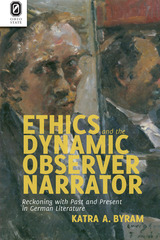
Ethics and the Dynamic Observer Narrator contributes to scholarship on both narrative theory and the historical and cultural context of German and Austrian literary studies. Narrative theory, according to Byram, should understand this form to register complex interactions between history and narrative form. Byram also juxtaposes new readings of works by Textor, Storm, and Raabe from the nineteenth century with analyses of twentieth-century works by Grass, Handke, and Sebald, ultimately reframing our understanding of literary Vergangenheitsbewältigung, or the struggle to come to terms with the past. Overall, Byram shows that neither the problem of reckoning with the past nor the dynamic observer form is unique to Germany’s post-WWII era. Both are products of the dynamics of modern identity, surfacing whenever critical change separates what was from what is.

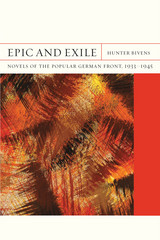
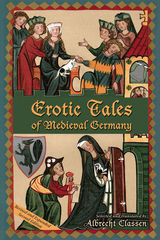

Ernst Jünger is in many ways Germany’s conscience, and much of the controversy surrounding him is at its source measured by his relation to the Nazis and Nazi culture. But as Nevin suggests, Jünger can more specifically and properly be regarded as the still living conscience of a Germany that existed before Hitler. Although his memoir of service as a highly decorated lieutenant in World War I made him a hero to the Nazis, he refused to join the party. A severe critic of the Weimar Republic, he has often been denounced as a fascist who prepared the way for the Reich, but in 1939 he published a parable attacking despotism. Close to the men who plotted Hitler’s assassination in 1944, he narrowly escaped prosecution and death. Drawing largely on Jünger’s untranslated work, much of which has never been reprinted in Germany, Nevin reveals Jünger’s profound ambiguities and examines both his participation in and resistance to authoritarianism and the cult of technology in the contexts of his Wilhelmine upbringing, the chaos of Weimar, and the sinister culture of Nazism.
Winner of Germany’s highest literary awards, Ernst Jünger is regularly disparaged in the German press. His writings, as this book indicates, put him at an unimpeachable remove from the Nazis, but neo-Nazi rightists in Germany have rushed to embrace him. Neither apology, whitewash, nor vilification, Ernst Jünger and Germany is an assessment of the complex evolution of a man whose work and nature has been viewed as both inspiration and threat.

The volume includes Schnitzler's popular Roundelay (La Ronde) and Anatol, as well as rarely translated works like Professor Bernhardi and Hour of Realizing. There are also additional scenes and an alternate ending to Anatol that are seldom found in translation or even in German versions of the play. With conscientious attention to the rhythms of speech and respect for the completeness of the works, these translations offer new possibilities for bringing Schnitzler's works to the contemporary stage and new insights for anyone interested in drama, literature, or history.
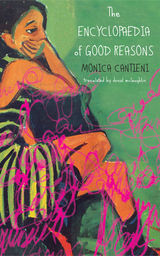
Set in the time of the crucial 1970 Swiss referendum on immigration, Monica Cantieni introduces us to a host of colorful characters who struggle to make Switzerland their home: Eli, the Spanish bricklayer; Toni, the Italian factory worker with movie star looks; Madame Jelisaweta, the Yugoslav hairdresser; and Milena, the mysterious girl in the wardrobe. This is a book with a very warm heart, and rarely has a young girl’s narrative been at once so uproariously hilarious and so deeply moving.
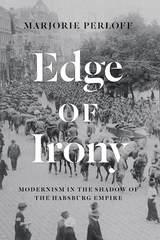
Perloff explores works ranging from Karl Kraus’s drama The Last Days of Mankind and Elias Canetti’s memoir The Tongue Set Free to Ludwig Wittgenstein’s notebooks and Paul Celan’s lyric poetry. Throughout, she shows that Austro-Modernist literature is characterized less by the formal and technical inventions of a modernism familiar to us in the work of Joyce and Pound, Dada and Futurism, than by a radical irony beneath a seemingly conventional surface, an acute sense of exile, and a sensibility more erotic and quixotic than that of its German contemporaries. Skeptical and disillusioned, Austro-Modernism prefers to ask questions rather than formulate answers.
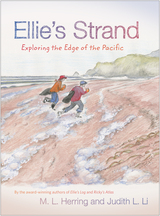
Green Earth Book Award, Honor Book
There are days in late winter when the Pacific coast enjoys a brief spell of clear, warm weather. Most of the winter storms have passed and the summer fog has not yet settled in. This is when some coastal communities plan their annual beach clean-ups.
In this sequel to Ellie’s Log and Ricky’s Atlas, Ellie and Ricky travel to the Oregon coast from their home in the Cascade Mountains to help with a one-day beach clean-up. Hoping to find a prized Japanese glass float, they instead find more important natural treasures, and evidence of an ocean that needs its own global-scale clean-up.
Ellie and Ricky are amazed by their discoveries at the edge of the world’s largest ocean. Together, they realize the power of volunteering and grapple with the challenges of ocean conservation. In her journal Ellie records her observations of their adventures in her own words and pictures.
With charming pen-and-ink drawings and a compelling story, Ellie's Strand makes coastal science exciting for upper elementary school students. It will be a treasured companion for young beach explorers everywhere.
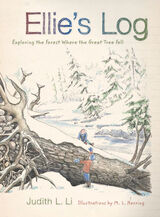
After a huge tree crashes to the ground during a winter storm, ten-year-old Ellie and her new friend, Ricky, explore the forest where Ellie lives. Together, they learn how trees provide habitat for plants and animals high in the forest canopy, down among mossy old logs, and deep in the pools of a stream. The plants, insects, birds, and mammals they discover come to life in colored pen-and-ink drawings.
An engaging blend of science and storytelling, Ellie’s Log also features:
• Pages from Ellie’s own field notebook, which provide a model for recording observations in nature
• Ellie’s advice to readers for keeping a field notebook
• Ellie’s book recommendations Online resources for readers and teachers—including a Teacher’s Guide—are available at ellieslog.org.

This comprehensive history of the American Association for the Advancement of Science (AAAS), the largest and most significant general organization of scientists in America, provides a unique window on the development of science in the United States during the past 150 years.
The Establishment of Science in America traces the evolution of the role of scientists in American society, public attitudes toward science, and the changing dimensions of the sponsorship of science and its participants. The essays by three distinguished authors connect the AAAS history to issues of continuing importance in American history, such as the integration of women and minority groups into mainstream professions and the role of expert knowledge in a democratic society.
The volume divides the history of the AAAS into three parts: Creating a Forum for Science in the Nineteenth Century; Promoting Science in a New Century: The Middle Years of the AAAS; and Shifting Science from People to Programs: AAAS in the Postwar Years.
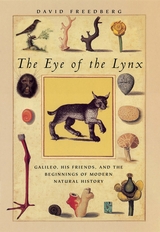
Founded by Prince Federico Cesi in 1603, the Linceans took as their task nothing less than the documentation and classification of all of nature in pictorial form. In this first book-length study of the Linceans to appear in English, Freedberg focuses especially on their unprecedented use of drawings based on microscopic observation and other new techniques of visualization. Where previous thinkers had classified objects based mainly on similarities of external appearance, the Linceans instead turned increasingly to sectioning, dissection, and observation of internal structures. They applied their new research techniques to an incredible variety of subjects, from the objects in the heavens studied by their most famous (and infamous) member Galileo Galilei—whom they supported at the most critical moments of his career—to the flora and fauna of Mexico, bees, fossils, and the reproduction of plants and fungi. But by demonstrating the inadequacy of surface structures for ordering the world, the Linceans unwittingly planted the seeds for the demise of their own favorite method—visual description-as a mode of scientific classification.
Profusely illustrated and engagingly written, Eye of the Lynx uncovers a crucial episode in the development of visual representation and natural history. And perhaps as important, it offers readers a dazzling array of early modern drawings, from magnificently depicted birds and flowers to frogs in amber, monstrously misshapen citrus fruits, and more.
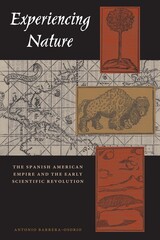
As Spain colonized the Americas during the sixteenth century, Spanish soldiers, bureaucrats, merchants, adventurers, physicians, ship pilots, and friars explored the natural world, gathered data, drew maps, and sent home specimens of America's vast resources of animals, plants, and minerals. This amassing of empirical knowledge about Spain's American possessions had two far-reaching effects. It overturned the medieval understanding of nature derived from Classical texts and helped initiate the modern scientific revolution. And it allowed Spain to commodify and control the natural resources upon which it built its American empire.
In this book, Antonio Barrera-Osorio investigates how Spain's need for accurate information about its American colonies gave rise to empirical scientific practices and their institutionalization, which, he asserts, was Spain's chief contribution to the early scientific revolution. He also conclusively links empiricism to empire-building as he focuses on five areas of Spanish activity in America: the search for commodities in, and the ecological transformation of, the New World; the institutionalization of navigational and information-gathering practices at the Spanish Casa de la Contratación (House of Trade); the development of instruments and technologies for exploiting the natural resources of the Americas; the use of reports and questionnaires for gathering information; and the writing of natural histories about the Americas.
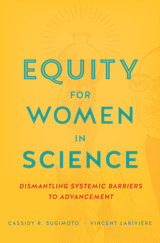
The first large-scale empirical analysis of the gender gap in science, showing how the structure of scientific labor and rewards—publications, citations, funding—systematically obstructs women’s career advancement.
If current trends continue, women and men will be equally represented in the field of biology in 2069. In physics, math, and engineering, women should not expect to reach parity for more than a century. The gender gap in science and technology is narrowing, but at a decidedly unimpressive pace. And even if parity is achievable, what about equity?
Equity for Women in Science, the first large-scale empirical analysis of the global gender gap in science, provides strong evidence that the structures of scientific production and reward impede women’s career advancement. To make their case, Cassidy R. Sugimoto and Vincent Larivière have conducted scientometric analyses using millions of published papers across disciplines. The data show that women are systematically denied the chief currencies of scientific credit: publications and citations. The rising tide of collaboration only exacerbates disparities, with women unlikely to land coveted leadership positions or gain access to global networks. The findings are unequivocal: when published, men are positioned as key contributors and women are relegated to low-visibility technical roles. The intersecting disparities in labor, reward, and resources contribute to cumulative disadvantages for the advancement of women in science.
Alongside their eye-opening analyses, Sugimoto and Larivière offer solutions. The data themselves point the way, showing where existing institutions fall short. A fair and equitable research ecosystem is possible, but the scientific community must first disrupt its own pervasive patterns of gatekeeping.

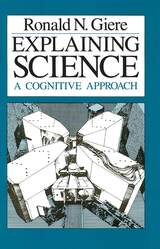
"The writing is delightfully clear and accessible. On balance, few books advance our subject as well."—Paul Teller, Philosophy of Science
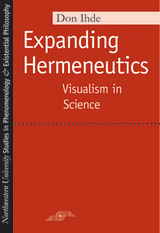
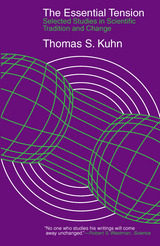
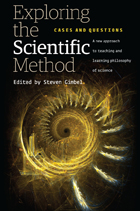
From their grade school classrooms forward, students of science are encouraged to memorize and adhere to the “scientific method”—a model of inquiry consisting of five to seven neatly laid-out steps, often in the form of a flowchart. But walk into the office of a theoretical physicist or the laboratory of a biochemist and ask “Which step are you on?” and you will likely receive a blank stare. This is not how science works. But science does work, and here award-winning teacher and scholar Steven Gimbel provides students the tools to answer for themselves this question: What actually is the scientific method?
Exploring the Scientific Method pairs classic and contemporary readings in the philosophy of science with milestones in scientific discovery to illustrate the foundational issues underlying scientific methodology. Students are asked to select one of nine possible fields—astronomy, physics, chemistry, genetics, evolutionary biology, psychology, sociology, economics, or geology—and through carefully crafted case studies trace its historical progression, all while evaluating whether scientific practice in each case reflects the methodological claims of the philosophers. This approach allows students to see the philosophy of science in action and to determine for themselves what scientists do and how they ought to do it.
Exploring the Scientific Method will be a welcome resource to introductory science courses and all courses in the history and philosophy of science.
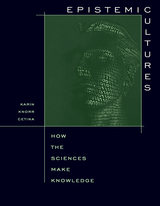
How does science create knowledge? Epistemic cultures, shaped by affinity, necessity, and historical coincidence, determine how we know what we know. In this book, Karin Knorr Cetina compares two of the most important and intriguing epistemic cultures of our day, those in high energy physics and molecular biology. Her work highlights the diversity of these cultures of knowing and, in its depiction of their differences--in the meaning of the empirical, the enactment of object relations, and the fashioning of social relations--challenges the accepted view of a unified science.
By many accounts, contemporary Western societies are becoming "knowledge societies"--which run on expert processes and expert systems epitomized by science and structured into all areas of social life. By looking at epistemic cultures in two sample cases, this book addresses pressing questions about how such expert systems and processes work, what principles inform their cognitive and procedural orientations, and whether their organization, structures, and operations can be extended to other forms of social order.
The first ethnographic study to systematically compare two different scientific laboratory cultures, this book sharpens our focus on epistemic cultures as the basis of the knowledge society.
READERS
Browse our collection.
PUBLISHERS
See BiblioVault's publisher services.
STUDENT SERVICES
Files for college accessibility offices.
UChicago Accessibility Resources
home | accessibility | search | about | contact us
BiblioVault ® 2001 - 2024
The University of Chicago Press



